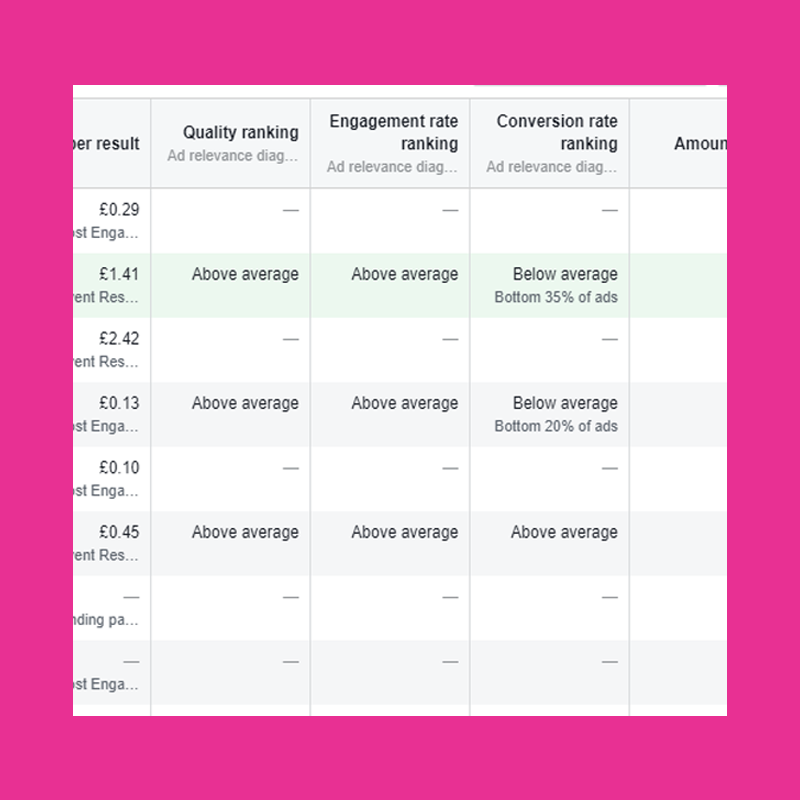Get on the Podium
Send us a message and let us know how we can help with your next project.
By Lia Gordon
This month Facebook announced it’s removing the relevance score measurement and replacing it with not one but three new metrics.
The new metrics are meant to be easier to understand and more accurate. The metrics are available on the platform already and will be definitely in place by 20th April, 2019.
Relevance score was first introduced in 2015 and was meant to help us marketers understand the relevancy of our ads to their target audiences. The score encouraged brands to make better, more relevant ads.
The relevance score was calculated based on the positive and negative feedback an ad received from its target audience. The more positive feedback the ad had, the higher the score and the more negative feedback, the lower the score.
However, the way scores were calculated didn’t take into consideration the variety of ad formats, nowadays users might engage with a video ad differently than how they would with an image. It was also really confusing for ad creators on what to do if the score was law.
Last week, Facebook rolled out three new relevance metrics and in its announcement, it explained: “We think that this level of granularity will offer reporting that’s more actionable for businesses.”

The new ad relevance diagnostics will measure relevance across three dimensions:
As Facebook adds: “When used together, ad relevance diagnostics will help advertisers understand whether changes to creative assets, audience targeting, or the post-click experience might improve performance.”
Facebook has also made changes to its ‘potential reach’ feature, which allowed advertisers to know how many people they can potentially reach by an ad campaign.
Potential reach was previously calculated based on the amount of total monthly active users on Facebook. The feature will now only include people who were shown an ad on Facebook within the last 30 days.
If you want to find more about Facebook advertising, please contact us today on 0191 466 1455 or email us at hello@www.onthepodium.co.uk
BackSend us a message and let us know how we can help with your next project.